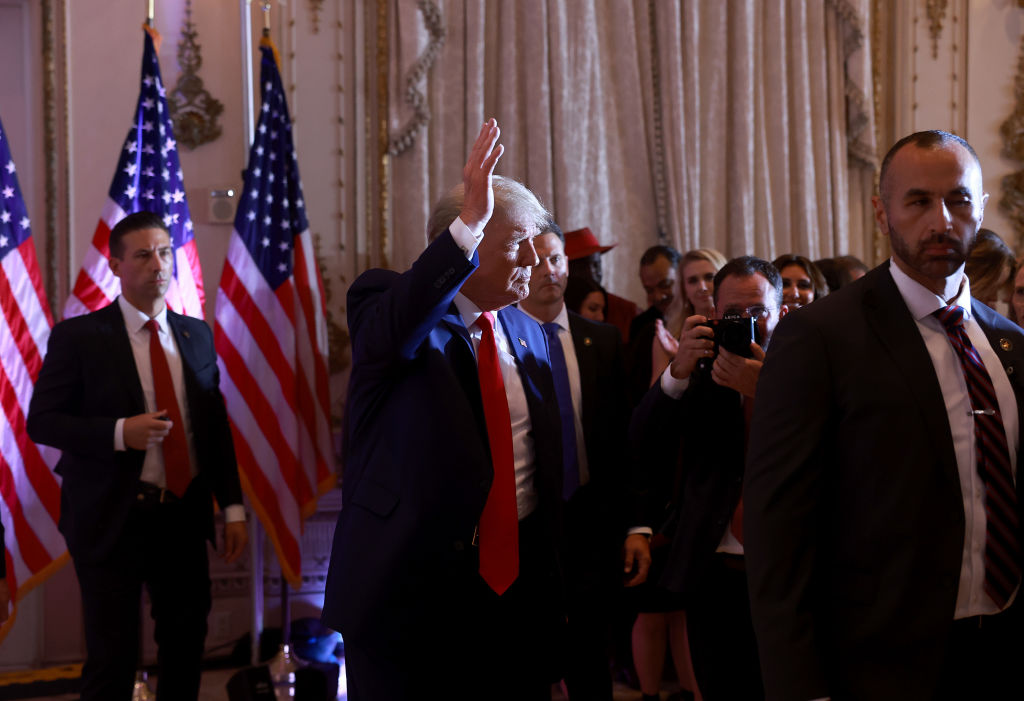
Former President Donald Trump wants to get back on Facebook for the 2024 presidential race, and while the political advertising landscape on the platform has changed, access to his account could still give his campaign a boost.
After the formal term of Trump’s two-year ban from Facebook ended Jan. 7, his campaign’s general counsel petitioned Meta CEO Mark Zuckerberg and other executives to reinstate the 45th President’s profile in a letter this week. An internal working group at Meta had already convened to discuss the issue and a spokesperson for Facebook’s parent company told CNN they would announce the resulting decision in the coming weeks.
With Trump officially running for President again in 2024, regaining access to the social media platform could be a boon for his campaign, experts say—though not in the way some voters might expect from the formerly prolific poster.
“The most important aspect of Meta’s decision isn’t Trump’s ability to get his message out. I think the most important impact would be felt in terms of fundraising and organization building,” says Tyler Brown, the former Director of Digital Strategy at the Republican National Committee. “Trump may not have changed much, but I do think the political experience on Facebook has changed dramatically.”
The Trump campaign is currently banned from placing ads on Facebook, a spokesperson for the platform confirmed to TIME.
Facebook first locked Trump’s account the day after the Jan. 6 attack at the U.S. Capitol, and determined the suspension would last two years, at which point Meta would turn to experts to decide whether “there is still a serious risk to public safety” that would lead them to extend the ban.
Trump had astounding success with grassroots fundraising from Facebook ads in the 2016 election. Since then, Meta has limited the abilities of campaigns on the site by changing how they can target ads and how the algorithm ranks their content, and some question whether the social media platform is as politically relevant as it was seven years ago.
But that doesn’t mean people should underestimate the reach Trump would have with his profile reinstated, analysts say. “Facebook is still absolutely important in the overall information ecosystem,” says Jeff Allen, co-founder of the Integrity Institute and a former Facebook integrity team member.
Emails and ads
Trump’s Twitter profile may have been his most iconic social media presence, but his Facebook account was likely his most lucrative.
For the 2016 election, Facebook was “a large part of the campaign’s data operation and bypassed traditional media outlets in order to galvanize President Trump’s voters,” Trump campaign spokesperson Steven Cheung told Fox News. He also said Facebook remains an important “operational tool” for the team. The Trump campaign did not respond to TIME’s request for comment.
In the 2020 election, during COVID-19 lockdowns and a reduction of in-person events, Facebook became an important tool for digital organizing, Brown says, with Facebook Groups helping candidates build out their email lists for fundraising and nurturing communities of potential voters. Facebook also allowed campaigns to run targeted ads with great precision during past presidential elections.
But after facing scrutiny for the huge volume of misinformation spread during past presidential campaigns, Facebook has been trying to become less of a player in the current political environment and “take the target off their back,” according to Brown. In so doing, it has changed several tools for campaigns that make it a less valuable platform for advertising and list building.
Since 2020, Facebook has limited the ability of politicians to target advertising by demographics such as region, age and political leaning. As a result, campaigns now have to spend more to get as much engagement with their sponsored posts and fundraising solicitations. To reduce politics content on the platform, Facebook also changed the way it ranks posts that seem political or civic within its algorithm so less of them appear in users’ feeds, says Allen—which would presumably apply to any content Trump posts.
Yet while the rules of campaigning on Facebook have changed, access to Trump’s profile’s 34 million followers—and the ability to grow that list—could still help the campaign. The platform’s user base, which skews older than that of other social media sites like Instagram or TikTok, overlaps with a core base of Trump voters. “The Facebook audience will be an important constituency in the Republican primary simply because the demographics align with Republican primary voters,” Brown says.
As for Trump’s other social media accounts, Twitter CEO Elon Musk has already restored Trump’s access to his nearly 88 million followers on that site, though Trump has yet to make his return. He has been posting instead on TRUTH Social, the platform he started after being banned from Twitter and Meta, where he has a little over 4.8 million followers.
-With reporting by Billy Perrigo/London
More Must-Reads from TIME
- Cybersecurity Experts Are Sounding the Alarm on DOGE
- Meet the 2025 Women of the Year
- The Harsh Truth About Disability Inclusion
- Why Do More Young Adults Have Cancer?
- Colman Domingo Leads With Radical Love
- How to Get Better at Doing Things Alone
- Michelle Zauner Stares Down the Darkness
Write to Julia Zorthian at julia.zorthian@time.com